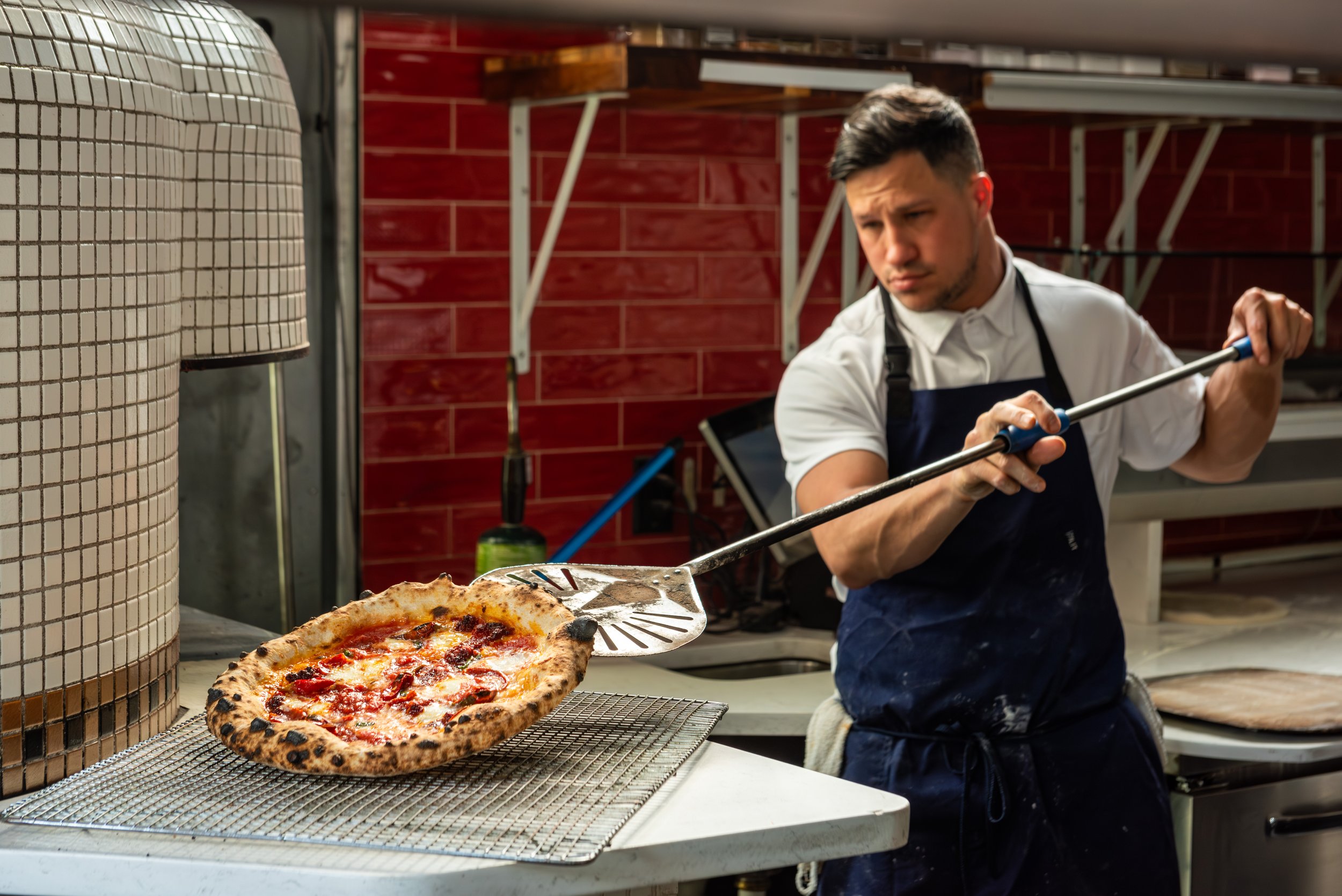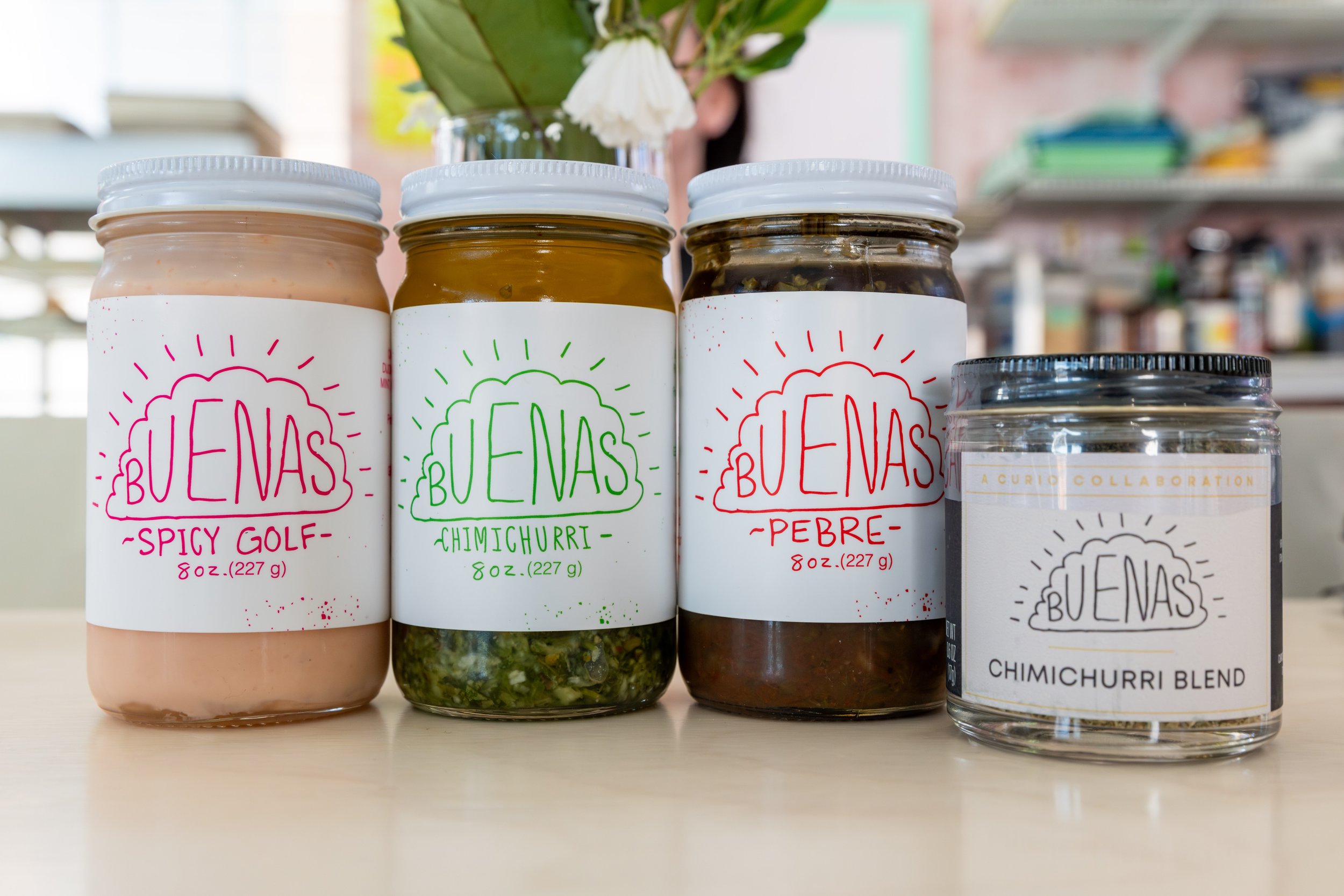The Promise of Pay-What-You-Can
A mindful business model lets Motzi Bread put their Baltimore community first.
In March of 2019, Maya Muñoz and Russell Trimmer started Motzi Bread as a subscription service operating out of their home.
One year later, they were transforming a former liquor store building in the Charles Village neighborhood of Baltimore into a bakery. Named after the Jewish prayer recited over bread, Motzi Bread is devoted to providing their community with nutritious, naturally fermented whole grain bread and pastries at a pay-what-you-can price.
“Everything we do is pay-what-you-can,” says Muñoz. “Prices are suggested.” They also have a pay-it-forward policy that allows customers to purchase a loaf for someone in need. While they had initially thought about phasing in this approach, the pandemic accelerated their plans. “Costs and access issues were being exacerbated, and it was more important than ever to make nutritious food accessible.” There would always be a risk factor in committing to pay-what-you-can. “The fear is that if we do this, the business would need to take a loss,” says Muñoz. But instead, business has been strong since the beginning, partially thanks to their subscription service which gave them a foundational customer base to grow from. “We have been in a position of excess. We have fewer people paying less than the suggested prices.” Although they are still in the process of determining price breakdowns, they estimate that, on average, customers pay about 5 percent over suggested prices.
In fact, Muñoz and Trimmer are now focusing on ways to encourage people in the community to take advantage of the PWYC policy. “We are determining ways in which we can measure impact and encourage greater use of the model,” says Muñoz. “We want to ensure that customers feel comfortable not paying the suggested amount.”
In addition to the high-quality product, maintaining a small team, and fair suggested prices, Muñoz attributes a large part of Motzi’s success to their community and their commitment to being rooted in the Charles Village neighborhood. “Being a community-focused business, we operate on input from subscribers and the community,” she says. “It’s really important for us to be truly invested here and to get feedback from our neighbors.” They are now in the process of designing surveys to receive feedback from customers and locals.
Rather than expanding or opening up multiple locations, Muñoz and Trimmer want their bakery to become a hub for the community and a home for neighborhood gatherings and fundraisers. And with only a handful of for-profit pay-what-you-can businesses in the country, Muñoz hopes that Motzi’s example can be the start of a new trend in the industry.








